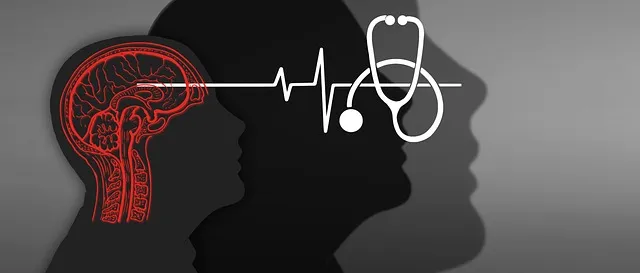Kaiser Longmont's Crisis Intervention Teams (CITS) provide swift, tailored mental health support for severe crises. These multidisciplinary teams offer holistic care, including acute interventions, depression prevention, and risk assessment. Through CITS, Kaiser Longmont focuses on building resilience, teaching burnout prevention, and reducing mental health stigma. Specialized training equips professionals to manage their own well-being while assisting others in crisis situations, ensuring effective long-term support through access to mental health services at Kaiser Longmont. Learn how to access these services by participating in crisis intervention team training programs.
Crisis intervention team (CIT) training programs equip professionals with vital skills to handle mental health crises effectively. In today’s digital era, understanding CITs is crucial for enhancing access to mental health services. This article explores how such teams can revolutionize support systems, focusing on Kaiser Longmont as a case study. We’ll delve into the process of accessing mental health services through Kaiser Longmont and highlight key training programs that build competent response teams, ensuring better outcomes for individuals in crisis.
- Understanding Crisis Intervention Teams
- Kaiser Longmont: Accessing Mental Health Services
- Training Programs: Building Effective Response Teams
Understanding Crisis Intervention Teams

Crisis Intervention Teams (CITS) are specialized groups within healthcare systems designed to provide immediate and effective support to individuals experiencing severe mental health crises. These teams typically consist of trained professionals from various disciplines, such as psychiatrists, psychologists, social workers, and paramedics, who collaborate to assess and de-escalate situations involving emotional dysregulation.
In the case of Kaiser Longmont, a leading healthcare provider, CITS play a pivotal role in ensuring access to mental health services. By integrating these teams, Kaiser Longmont offers a comprehensive approach to crisis care, focusing not only on acute interventions but also on depression prevention and risk assessment for mental health professionals. This holistic strategy enables them to deliver efficient support tailored to each individual’s unique needs, ultimately enhancing emotional regulation during critical moments.
Kaiser Longmont: Accessing Mental Health Services

Kaiser Longmont offers a dedicated mental health service access point, providing essential support to those in need. Individuals seeking assistance can reach out and connect with professionals who are skilled in various therapeutic approaches. The program focuses on fostering resilience building within the community, ensuring individuals have the tools to navigate through challenging situations. Through structured crisis intervention training, participants learn effective burnout prevention strategies for healthcare providers, enabling them to manage their own well-being while assisting others.
This initiative by Kaiser Longmont emphasizes mood management as a crucial aspect of crisis care. By offering these services, they aim to reduce the stigma surrounding mental health and promote an environment where support is readily available. The training programs cater to healthcare providers, equipping them with the knowledge and skills needed to recognize and address both their own and their patients’ mental health crises effectively.
Training Programs: Building Effective Response Teams

Crisis intervention team training programs play a pivotal role in equipping individuals with the skills needed to provide effective support during mental health crises. These comprehensive courses go beyond basic first aid; they foster an environment where participants learn not just stress reduction methods and mood management techniques, but also empathy building strategies. Through interactive simulations and expert-led workshops, trainees gain a deeper understanding of complex emotional situations, enabling them to respond with compassion and professionalism.
The impact extends beyond the training hall; equipped teams can swiftly connect individuals in need with vital mental health services, such as those offered by Kaiser Longmont. This seamless integration ensures that crisis responders not only stabilize situations but also facilitate access to long-term care, promoting holistic well-being for those facing mental health challenges.
Crisis intervention team training programs equip professionals with the skills to navigate and de-escalate critical situations effectively. As discussed, Kaiser Longmont offers accessible mental health services that contribute to this process. Through comprehensive training, teams gain a deeper understanding of crisis management, fostering an environment where everyone can access the support they need. For those seeking to enhance their ability to respond during crises, these programs are a vital step towards building stronger and more resilient communities. To get started with mental health services through Kaiser Longmont or similar initiatives, consider exploring available training options tailored to your role and interests.






